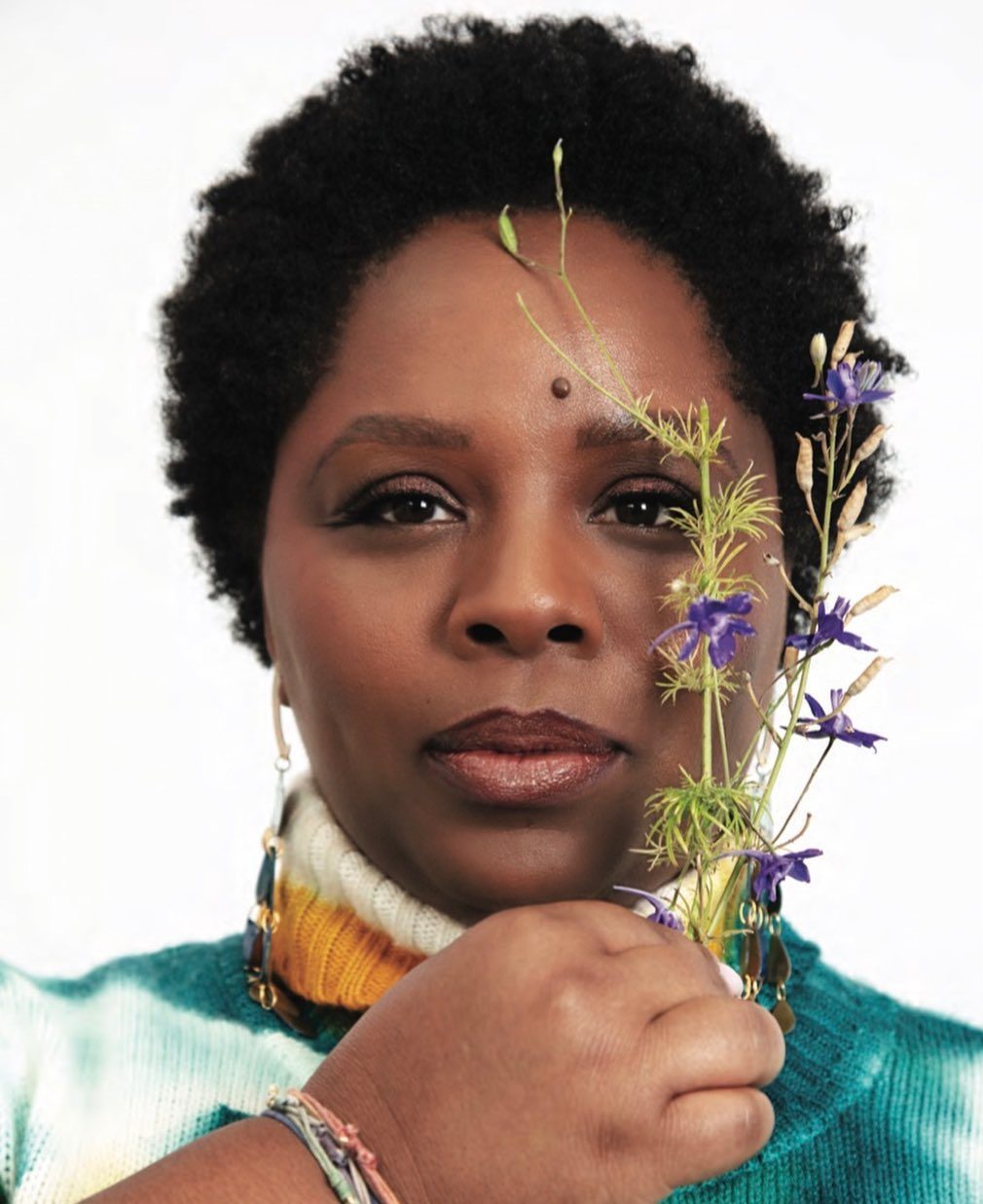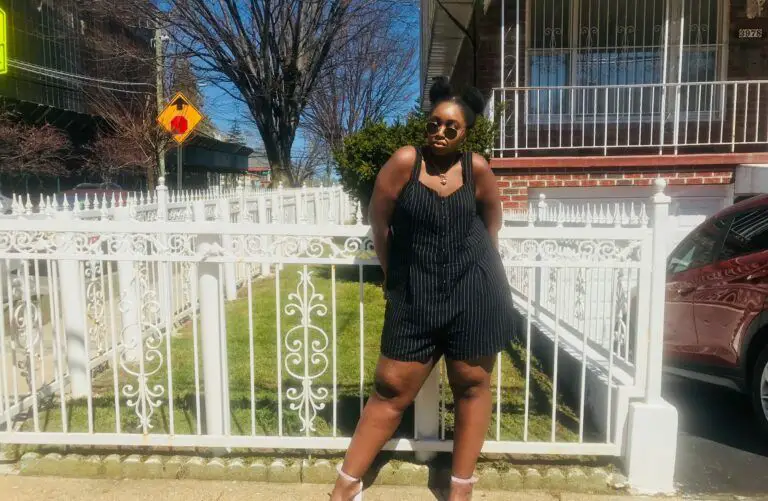February is federally recognized as the month to celebrate Black beauty, survival, success, love, and resilience. When you think of Black History Month, the first few people that come to mind are Rosa Parks, Martin Luther King Jr, and, at best, Malcolm X.
Fat Black Women are least likely to be recognized.
“Throughout our nation’s history, Fat Black Women have fought racism, sexism, classism, and a host of other societal ills, yet by and large, have been excluded from the conversation based on fatphobia”
Amapoundcake
Fat Black Women have been shifting the culture for decades. Black Excellence doesn’t exist without Ma Rainey, Hattie McDaniels, Mary McLeod Bethune, and many other forgotten Fat Black Women.
There wouldn’t be a Stacey Abrams (Politician), Lisa Jackson (Apple VP), or Lizzo (Pop Star) without the Fat Black Women who stood tall against racial, gender, and size discrimination.
It’s time to start celebrating Fat Black Women and their many contributions to health care, science, music, and culture!
Here are 5 Fat Black Women you should know:
Fannie Lou Hamer
“I’m sick and tired of being sick and tired.”
– Fannie Lou Hamer
She was a grassroots organizer, women’s rights activist, and civil rights leader.
Organizing voter drives and registering voters to change the political landscape for Black people. Hamer organized the Mississippi Freedom Summer with the National Women’s Political Caucus.
Hamer dedicated her life to voter rights. She represented at the 1964 Democratic National Convention for the Freedom Democratic Party, which she co-founded and served as vice-chair.
She was a victim of medical racism & misogyny. Hamer went to the hospital for a uterine and was given a medical hysterectomy without her consent.
“Just because people are fat, it doesn’t mean they are well fed. The cheapest foods are the fattening ones, not the most nourishing.”
– Fannie Lou Hamer
Hamer isn’t as known for her food justice advocacy, but she organized Black farmers throughout Mississippi. In 1969, she created the Freedom Farm Cooperative, an organization created to make land accessible for Black Farmers. She believed in food sustainability.
Patrisse Cullors
“One of the worst things about racism is what it does to young people.”
– Patrisse Cullors
Grassroots activist Patrisse Cullors was born in Van Nuys, California in 1983. She attended the Roski School of Fine Arts and Design at the University of Southern California.
She created Dignity and Power Now, a coalition dedicated to fighting police brutality. In 2012, she created STAINED: An Intimate portrayal of State Violence, a performance art piece about the violence of mass incarceration.
After the acquittal of George Zimmerman after his murder of Trayvon Martin, Patrisse co-founded a movement that helped revolutionize the globe in 2013. Black Lives Matter has since grown to an international organization with dozens of chapters and thousands of determined activists fighting anti-Black racism world-wide.
In 2018, she became an adjunct professor at Prescott College in the Social Justice & Community Organizing program. She co-authored When They Call You a Terrorist: A Black Lives Matter Memoir, a New York Times Bestseller.
Black Lives Matter has been nominated for a Nobel Peace Prize in 2021.
Velma Middleton
Velma Middleton was born on September 1, 1917, in St. Louis Missouri.
She was a jazz vocalist and is known for her collaborations with Louis Armstrong’s band. She was originally a dancer who did splits on stage.
In 1947, Middleton joined his All-Stars after Armstrong broke up the first group.
“She was often used for comic relief, such as for duets with Satchmo on “That’s My Desire” and “Baby, It’s Cold Outside”, and she did occasional features.”
Jae Jones
“His star singer was Velma Middleton, a 250-lb. lady named–by the Gagwriters Association–Miss Petite of 1946. She waddled through ‘Shoo Fly Pie and Apple Pan Dowdy’ and then did a split which almost literally brought down the house.” – Time magazine, 1946
Middleton suffered a stroke while touring in Sierra Leone in January of 1961 with Armstong. She died in the hospital in Freetown after a month in the hospital.
Louis Armstrong’s manager, Joe Glaser (a white talent manager) was criticized for refusing to transfer Velma Middleton to a better hospital for care.
Dr. Shirley Nash Weber
Shirley Weber graduated at the top of her high school class and received her doctoral degree by the age of 26. After graduation, she taught classes at California State University at Los Angeles and Los Angeles City College. Later, she developed the Africana department’s curriculum and recruited the faculty for San Diego State University.
She ran for the San Diego Unified School District in 1988 and served as president during her time. She was appointed as the first African American Secretary of State of California.
On May 29th, 2019, California passed a bill, spearheaded by Dr. Weber, that changed how officers used deadly force. With over 40 years of public service, Weber has championed racial justice and education bills. Dedicating her life to making the lives of California’s better.
“When students learn about themselves and those around them, it gives them purpose and helps them realize they are contributors to society and have a responsibility to the people around them.”
Shirley Weber
Linda Carol Brown
“We feel disheartened that 40 years later we’re still talking about desegregation. But the struggle has to continue.”
– Linda Brown
Linda Brown was born in Topeka, Kansas in 1942. As a grade student, she was forced to attend a segregated school across the tracks even though there was a school four blocks from her home. In 1950, the NAACP (National Association for the Advancement of Color People) filed a lawsuit against the Board of Education.
Linda Brown was one of 13 children who were apart of the Brown V. Board of Education due to her father not being able to enroll her into the closer school.
In 1979, she worked with the American Civil Liberties Union to reopen the case due to the Topeka School District continuing segregation. In 1993, the Court of Appeals ruled that the schools were segregated.
The histories of these 5 Black women and countless Black women just like them are essential to voice, praise, and remember. While we use Black history month to highlight the voices, accomplishments, and monumental struggles of Black people throughout history, it is important to uplift the voices of Black women currently doing incredible things every single day of the year.








Good article – thank you.
Amazing article! Fat Black women have been the moral compass of our society since it’s birth but they are often forgotten when we celebrate our history.
Great article, I loved the highlights of the different types, women, plus size women, in the industry with multiple creditable talents. This definitely shows a diverse historical reference to the hidden greatness that we have yet to tap into. Great read!!